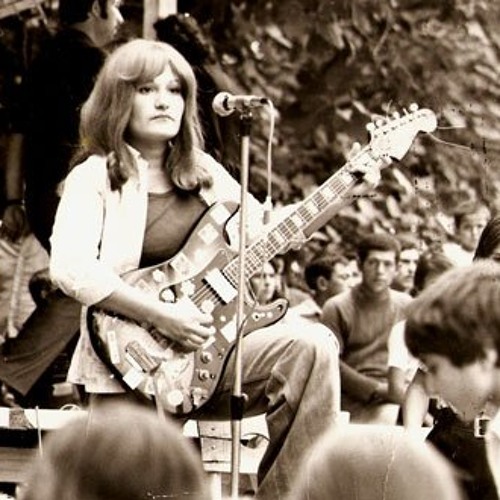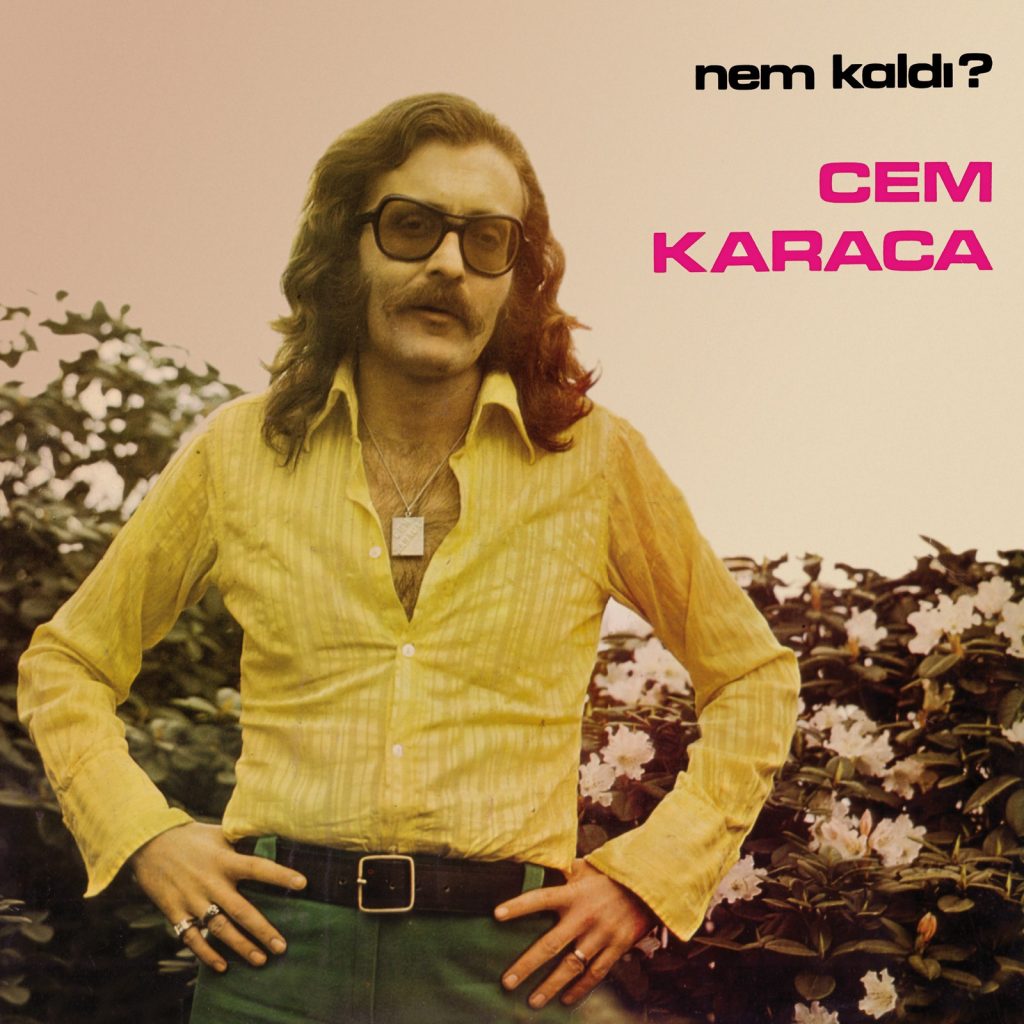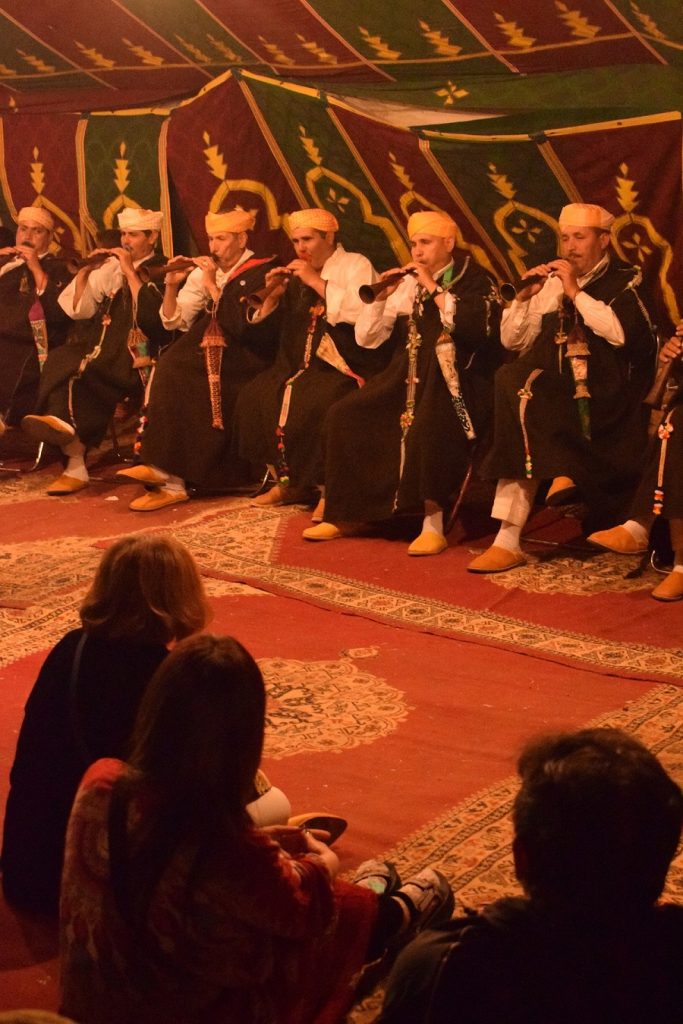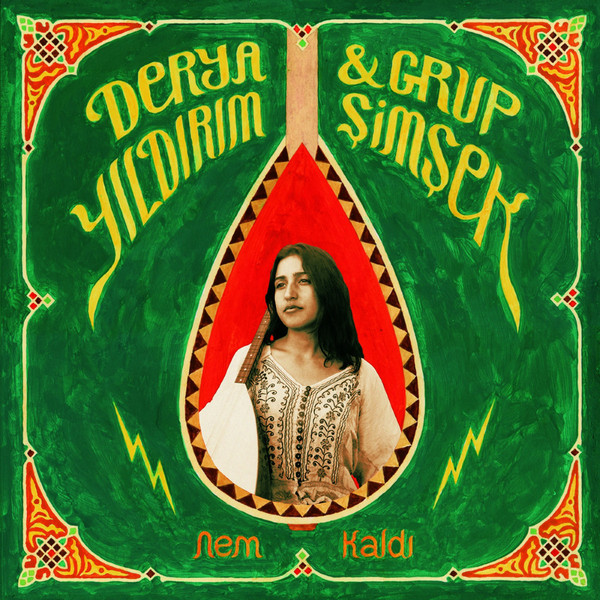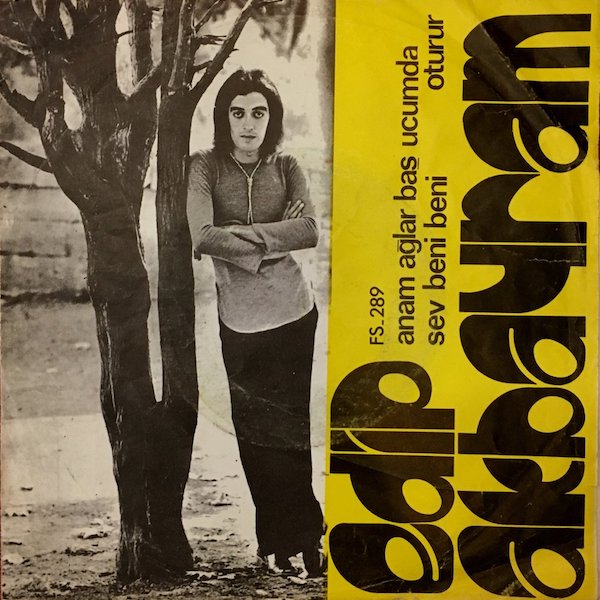
The Revival of Anatolian Rock
Turkey’s musical explosion of the 60s and 70s, usually called “Anatolian Rock”, had almost been sealed in time and hearts by the military coup of 1980, if the new generations did not dare to dig that energy out! Perhaps the first elaborate account of this musical genre surprisingly (or unsurprisingly) came from outside Turkey, from a British soul actually, who happens to be a poet, writer, broadcaster and improviser. Daniel Spicer gives the coordinates of the burial for those who would like to dig deeper!
“In most other parts of the world, local youngsters just tried to copy rock and roll without really changing it to sound like their own music, but Turkish groups really made it their own.”
On your Twitter account, you say somewhere that you’ve “accidentally” ended up being an international expert on Turkish psychedelic music. How come?
I am only being half-serious when I say I am an accidental expert on Turkish psych. As I explain in my book Anadolu Psyche, I was originally commissioned to write an article on the subject for Wire magazine in 2011. Before then I didn’t know anything about the scene –but when I investigated, I enjoyed the music that I heard. While I was researching for the article, I soon realized there was not much information on the subject in English, so I thought it would make a good subject for a book. It is now, I think, the only account of that piece of history in the English language –and I have recently found out that it is being translated and published in Turkey too! Curiously, it seems there have not been too many accounts of the story published there either.
ANATOLIAN ROCK AND 1980 COUP
What made their sound entirely their own? And why should people from other corners of the world give an ear to this music?
Turkish psychedelic music is unique and so unmistakably Turkish because it draws on so many elements of traditional Turkish music. It incorporates traditional instruments like the saz, ancient folk rhythms and songs originally sung by the asiks* in Ottoman times. It melds these with elements of US/British rock and psychedelia to create a true hybrid. In most other parts of the world, local youngsters just tried to copy rock and roll without really changing it to sound like their own music, but Turkish groups really made it their own.
What does that music tell you about the Anatolian “psyche” (or core spirit)?
On one hand, the music demonstrates that Turkish culture is very robust and that the Turkish have a very strong sense of themselves as a people. However, as the book demonstrates, the story of Anadolu Psych, as I call it, also shows an ongoing socio-cultural tug of war in Turkey between east and west, spiritual and secular, ancient and modern, which is still going on today. Perhaps it is more urgent now than ever.
What buried this genre down in the end? Could we talk about its renaissance lately?
Anadolu Psych ended with the right-wing military coup in 1980. The music was seen as undesirable and the musicians –many of whom were outspokenly left-wing– as trouble-makers. In order to survive, most of these musicians stopped making such challenging sounds. Some went into exile overseas. Some simply retired. Some, who carried on making music, changed their style to suit the more throwaway and commercial sounds of the 1980s. The music was kind of forgotten for a while but started to be rediscovered in the 90s and then was brought to new audiences through a handful of compilations around the turn of the millennium and, more recently, reissues on labels like the UK’s Finders Keepers and Spain’s Pharaway Sounds. Now there is a new generation of young Turkish musicians who are more or less explicitly influenced by –even recreating– those sounds of the 60s and 70s, from vocalist Gaye Su Akyol to Grup Simsek featuring the young saz player Derya Yildirim.
IN SEARCH OF FORGOTTEN GEMS OF JAZZ
What was the weirdest, or the most awe-inspiring thing you came upon during your research for your title “Anadolu Psych”?
Selda’s story is pretty amazing: a young woman in a very macho scene, an incredible singer who had the nickname “the bitter sound of Turkey” because of her sorrowful voice, an outspoken leftist and defender of the common people who were persecuted and intimidated by the authorities and who survived it all and is still going strong and performing today.
Could we also talk about your second book on various forgotten jazz LPs? Could you mention a few of these names or albums?
My second book, Lost In The Vaults: Rare Collectables and Forgotten Gems from the Jazzwise Magazine Archives, was published last year. It collects 13 years of a monthly column called Lost In The Vaults that I wrote for Jazzwise magazine, looking at jazz-related records that had not yet been reissued. It includes cover art, release details, updated price guides plus my reviews for 135 records touching on free-jazz, fusion, Latin, deep-jazz, hard-bop, jazz-rock, improv, Afro-jazz and more, and includes some amazing records by well-known artists such as Sun Ra, Archie Shepp and McCoy Tyner, as well as some very rare and obscure records by the likes of Roy Brooks & The Artistic Truth, Shanti, Lubat Luis Engel Group and many others. It’s one for jazz-heads, vinyl-freaks, record-nerds and music lovers!
When do you understand that you stumble upon a true gem at a record store?
You know, I love crate digging in used record stores but most of these were found on the Internet by looking at various blogs and collectors’ sites not to mention Discogs and Youtube. I had to come up with a new record each month so it would have cost me a fortune if I’d had to buy them all!
MYSTIC MUSIC GATHERINGS AROUND THE WORLD
I’ve realized that your interest in mystic music has lately driven you to Northern Morocco for a Sufi trance festival. How was the vibe?
Yeah, the Master Musicians of Jajouka festival is amazing. It’s like entering an ancient and eternal world of myth and music. It takes place in a very remote village in the beautiful Rif Mountains. You stay in the homes of the musicians themselves and they are wonderful hosts providing huge, sumptuous feasts and awesome, mesmerising music that lasts until dawn each night. There is nothing else like it.
What other hotspots are there around the globe for the chasers of mystic music? Which ones have you explored so far and which ones do you aspire to visit one day?
Morocco has such a rich and exciting musical heritage. As well as visiting the Master Musicians of Jajouka last year, I spent some time in Marrakesh in 2017 and recorded the gnawa trance musicians who play in Jemaa El Fna Square every night. You can hear some of this on my Soundcloud page. It’s such a transporting sound. You can also hear some devotional music I recorded in Delhi and Rishikesh in northern India last year. I’m a Vedic meditator so this speaks to me very deeply. I would very much like to venture further into the Himalayas and hear the traditional music of Tibet, Nepal and Ladakh.
One more question on your radio program. How could we tune in? What type of content does it cover usually?
My radio show, The Mystery Lesson, ran for 13 years on Radio Reverb, a local station here in Brighton, where I live, on the south coast of England and also reached a much wider audience through the web station Totallyradio. It fluctuated between being a weekly or monthly show depending on how busy I was but these days I have cut it right back and am now doing only a few longer shows each year. I have just recently done a 2-hour lockdown special recorded at home. The show specialises in improvised music, focussing mainly on free-jazz and improv but there have been a lot of surprises over the years. You can stream episodes here https://www.totallyradio.com/shows/the-mystery-lesson or download all 322 episodes from here https://mysterylesson.posthaven.com
Which track would you listen to on a seemingly “hopeless” day to cheer up?
This is an impossible question but I think You’ve Got to Have Freedom by Pharoah Sanders always sounds like a bright, irrepressible burst of joyful optimism.
Erkin Koray, Cemalim
Baris Manco, Gonul Dagi
Selda Bagcan, Ince Ince Bir Kar Yagar
Ersen ve Dadaslar, Bir Ayrılık Bir Yoksulluk
Cem Karaca & Mogollar, Ihtiyar Oldum
Bunalimlar, Basak Saclim
3 Hurel, Sevenler Aglarmis
Fikret Kizilok, Yakar Inceden Inceden
Edip Akbayram, Mehmet Emmi
Derya Yildirim & Grup Simsek, Der
To listen this playlist on Spotify, click on the heading.
* Editor’s Note: “Asik” is a term used in a huge geography from Central Asia to Balkans for minstrels (especially Turkic ones), who sing their poems accompanied by “saz” in an improvisational way. Their verses usually tell us about the main social events of their time, besides unattained love.
 English
English





